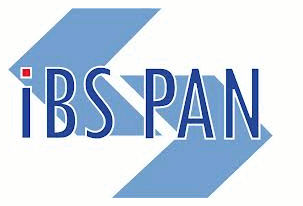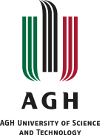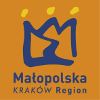4th Workshop on Advances in Programming Languages (WAPL'13)
Kraków, Poland, September 8-11, 2013
Programming languages are programmers' most basic tools. With appropriate programming languages one can drastically reduce the cost of building new applications as well as maintaining existing ones. In the last decades there have been many advances in programming languages technology in traditional programming paradigms such as functional, logic, and object-oriented programming, as well as the development of new paradigms such as aspect-oriented programming. The main driving force was and will be to better express programmers' ideas. Therefore, research in programming languages is an endless activity and the core of computer science. New language features, new programming paradigms, and better compile-time and run-time mechanisms can be foreseen in the future.
The aims of this event is to provide a forum for exchange of ideas and experience in topics concerned with programming languages and systems. Original papers and implementation reports are invited in all areas of programming languages.
Topics
Major topics of interest include but are not limited to the following:
- Automata theory and applications
- Compiling techniques
- Domain-specific languages
- Formal semantics and syntax
- Generative and generic programming
- Grammarware and grammar based systems
- Knowledge engineering languages, integration of knowledge engineering and software engineering
- Languages and tools for trustworthy computing
- Language theory and applications
- Language concepts, design and implementation
- Markup languages (XML)
- Metamodeling and modeling languages
- Model-driven engineering languages and systems
- Practical experiences with programming languages
- Program analysis, optimization and verification
- Program generation and transformation
- Programming paradigms (aspect-oriented, functional, logic, object-oriented, etc.)
- Programming tools and environments
- Proof theory for programs
- Specification languages
- Type systems
- Virtual machines and just-in-time compilation
- Visual programming languages
Paper Submission, Publication and Indexation
- Authors should submit full papers in English (as Postscript, PDF, MSWord, or ODF file).
- The total length of a paper must not exceed 8 pages IEEE style (including tables, figures and references). IEEE style templates are available here.
- Papers will be refereed and accepted on the basis of their scientific merit and relevance to the conference.
- Submitted papers must be unpublished and not under review in any other conference or journal (submissions that violate this requirement will be regarded as self-plagiarism).
- Organizers reserve right to move accepted papers between FedCSIS events.
- Only papers presented at the conference will be included in the IEEE Xplore® database and submitted for indexation.
- Proceedings of the FedCSIS 2012 conference were indexed in the Thomson Reuters - Conference Proceedings Citation Index, where they will also be submitted in 2013.
- Furthermore, FedCSIS proceedings will be submitted for indexation to: DBLP Computer Science Bibliography, Inspec, Scirus, and other repositories.
- Extended versions of selected papers presented during the conference may be published as Special Issue(s) of journal(s)
Important Dates
- Paper submission: May 21, 2013
- Author notification: June 21, 2013
- Registration opening (regular registration fee): July 5, 2013
- Final paper submission system opening: July 5, 2013
- Submission of the final version of the paper deadline: July 12, 2013
- Deadline for fee payment to assure paper publication: August 12, 2013
- Higher registration fee comes to effect: August 25, 2013
- Conference date: September 8-11, 2013








